The Essential Yet Most Overlooked Skills of the Successful Nonprofit Leader
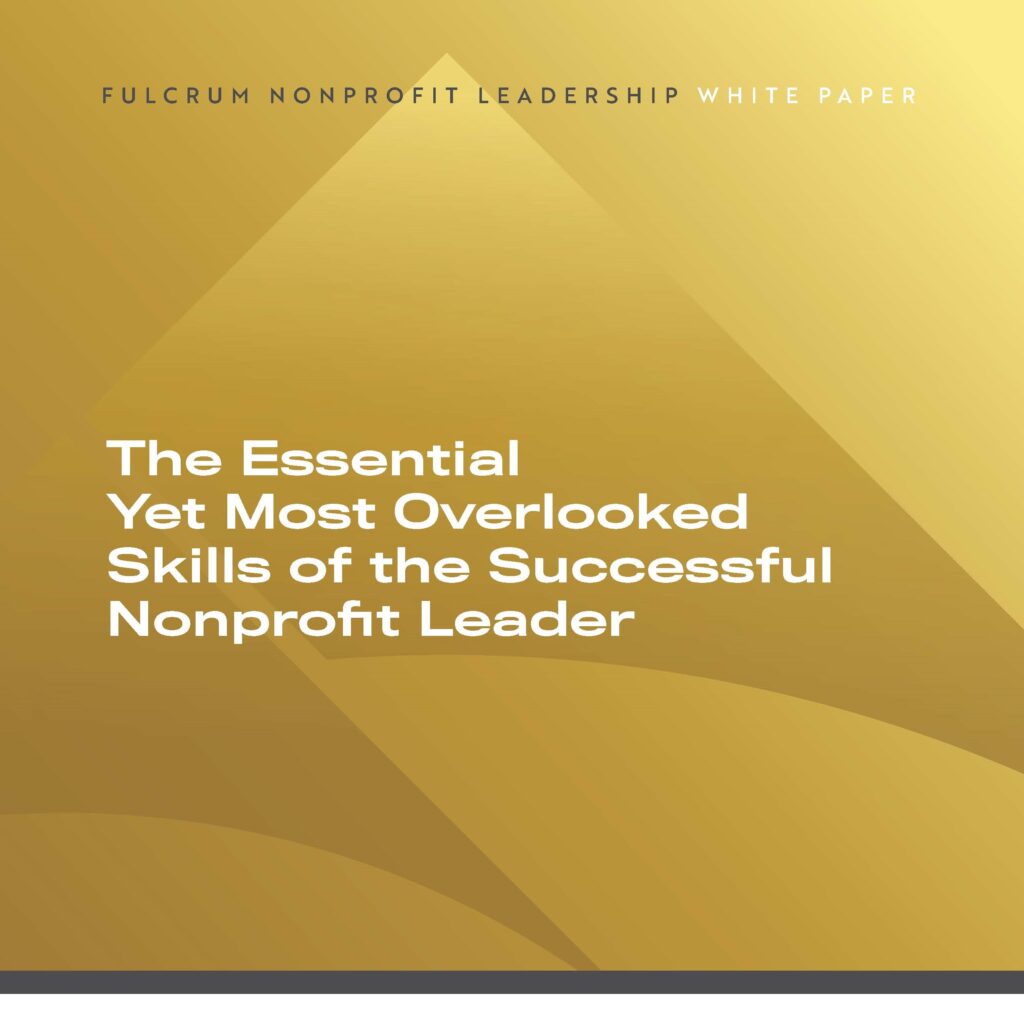
FREE: This white paper explores the essential yet often overlooked nonprofit leadership skills, including emotional intelligence, resilience, cultural competence, innovative thinking, and more.
The Importance of Resilience and Adaptability for Nonprofit Leaders
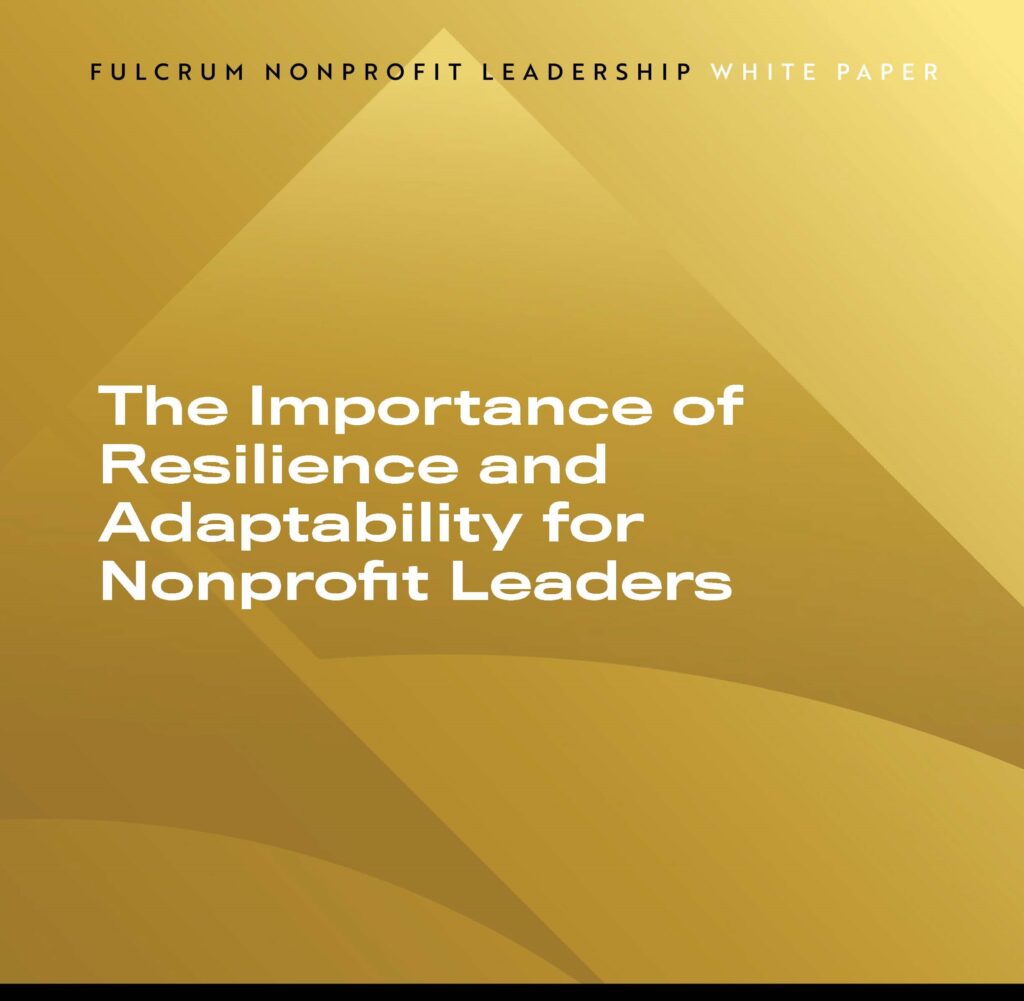
This white paper highlights the importance of resilience and adaptability, focusing on two key components: Handling Setbacks and Flexibility. It provides practical examples and actionable steps to help nonprofit leaders strengthen their capacity to lead effectively under pressure.
The Importance of Emotional Intelligence for Nonprofit Leaders
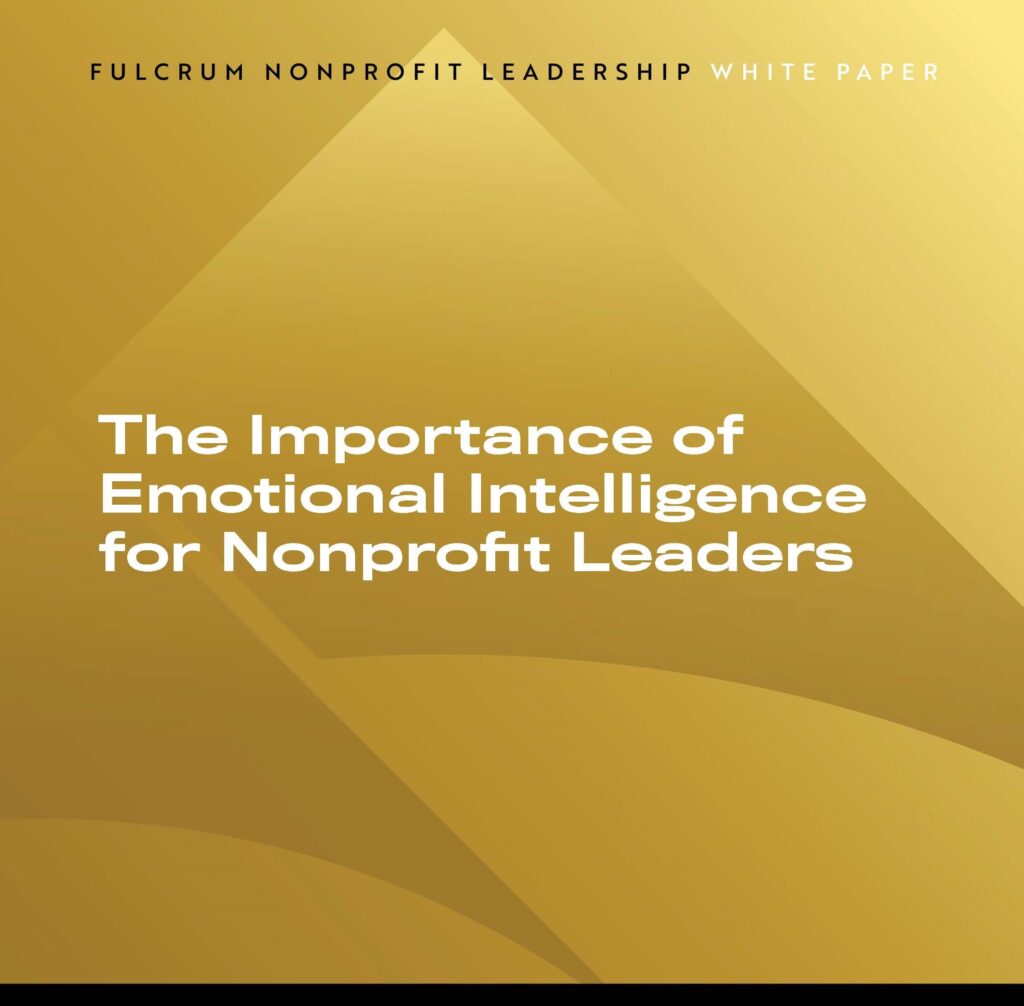
This paper explores the vital role of EI, focusing on two key dimensions: Understanding and Managing Emotions and Empathy. We highlight how these competencies empower leaders to build strong relationships, inspire teams, and advance mission-driven goals, offering practical examples for immediate implementation.
The Power of Words in Nonprofit Leadership

For a nonprofit CEO or another nonprofit leader, the way they articulate the organization’s mission, values, and goals can significantly impact their ability to inspire, build trust, advocate, fundraise, and lead.
The Important Role of the CEO in Driving an Effective Strategic Planning Process
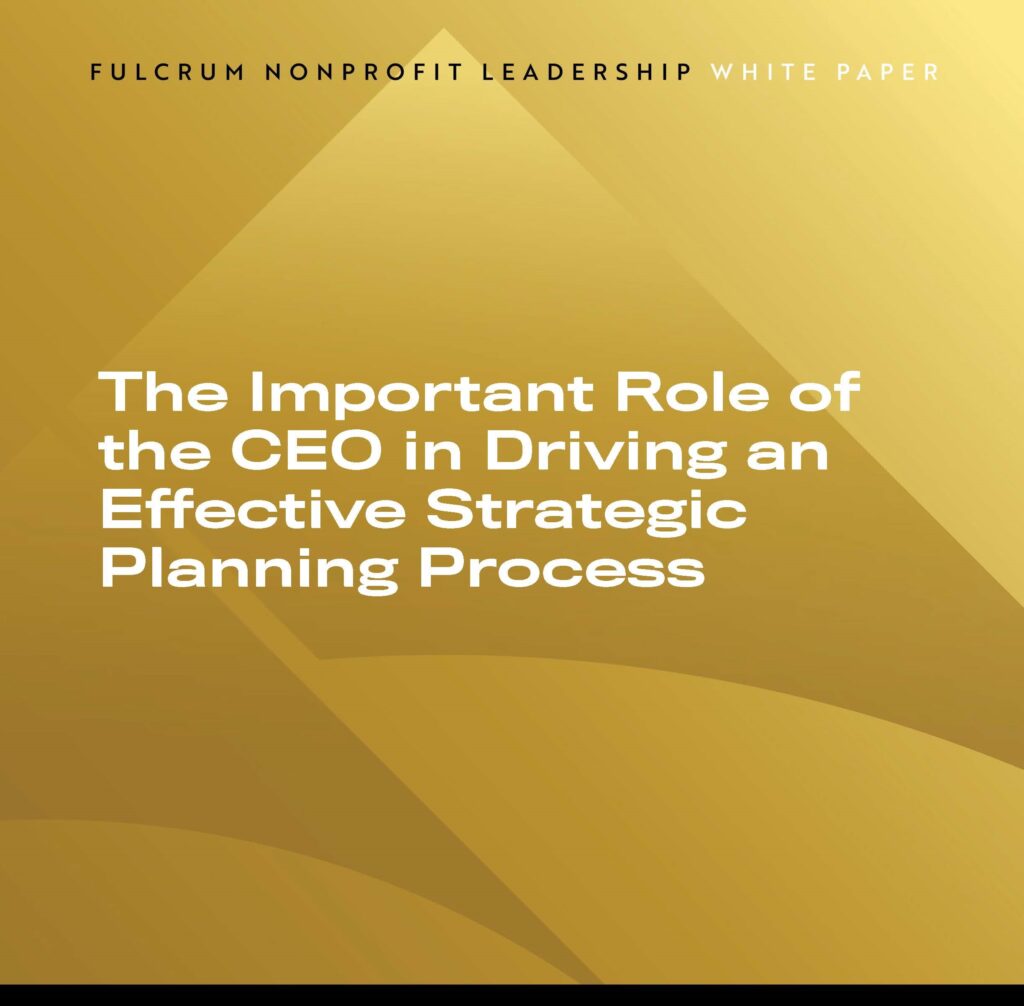
This white paper explores the important role of the CEO in driving an effective strategic planning process, focusing on key responsibilities, leadership qualities, and practical steps to ensure that strategic planning efforts are aligned with the organization’s mission and long-term success.
The Challenges in Defining the Nonprofit CEO Role

This white paper explores the key reasons why writing a comprehensive and accurate job description or SOP for a nonprofit CEO is particularly difficult, and it provides insights into the unique nature of this leadership role.
Making the Case for More Professional Development in the Nonprofit Sector
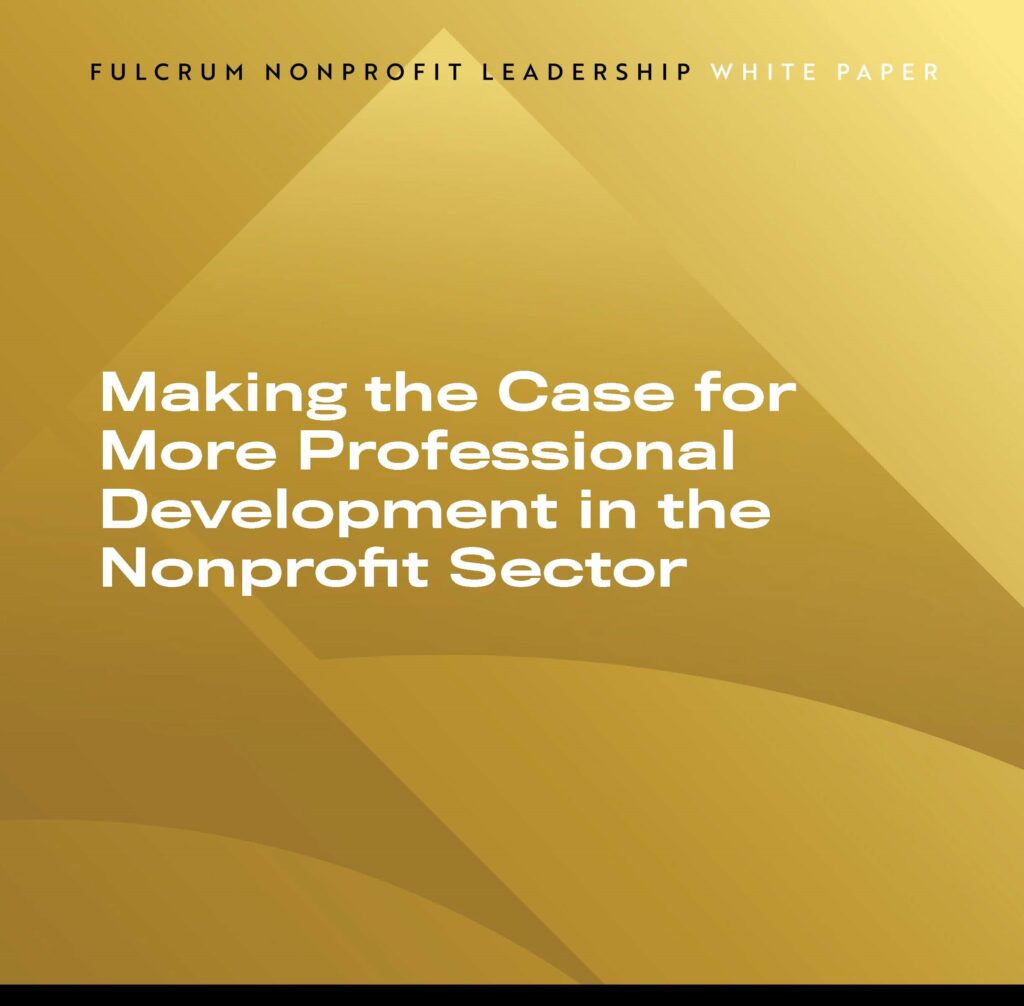
This white paper explores the current state of professional development in the nonprofit sector, supported by evidence that highlights its challenges and opportunities for improvement.
Building an Authentic and Sustainable Culture of Philanthropy in a Nonprofit Organization
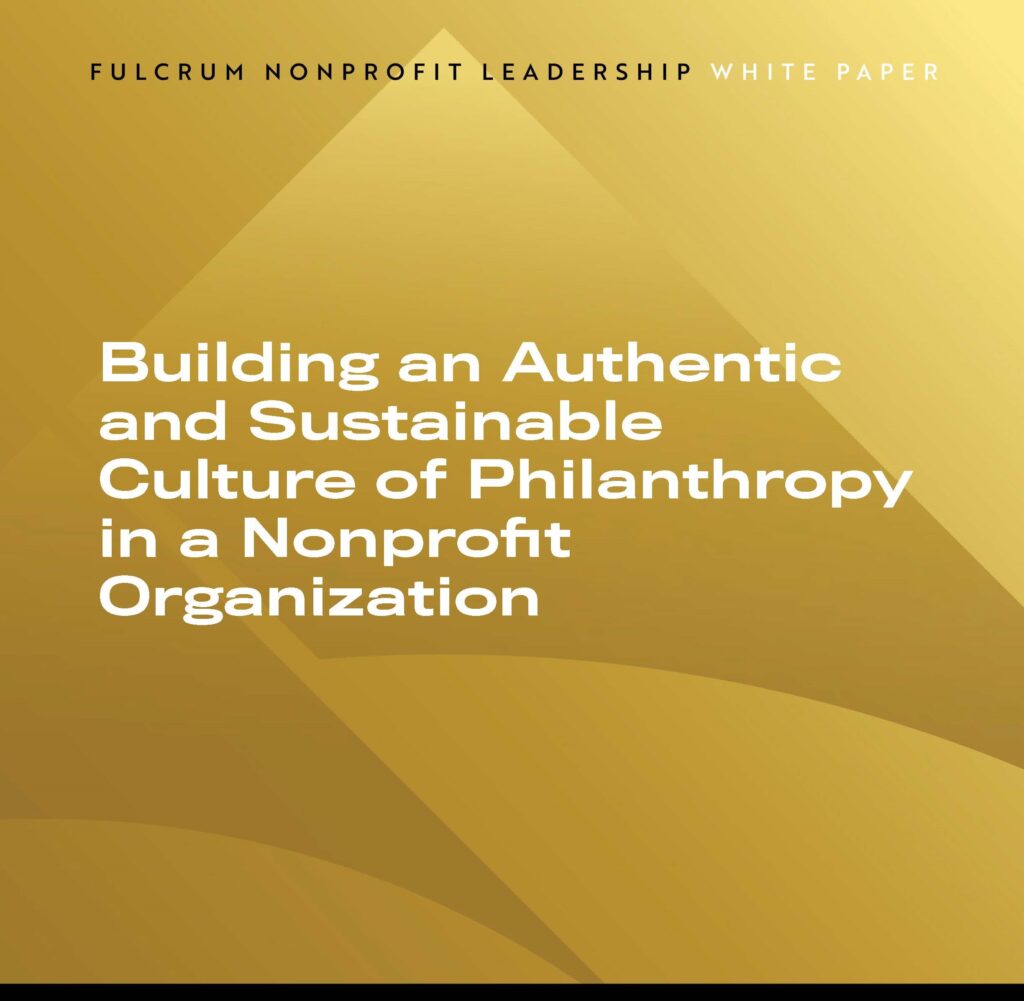
This white paper explores the principles, strategies, and steps necessary for nonprofit organizations to cultivate a sustainable culture of philanthropy that authentically connects with stakeholders and supports long-term success.
The Five Tool Fundraiser

The Five Tool Fundraiser ™ is a tested and proven framework for understanding the characteristics of the best and most successful development professionals in the nonprofit and fundraising industries and provides a more thoughtful and strategic approach to understanding the work of the development professional.

